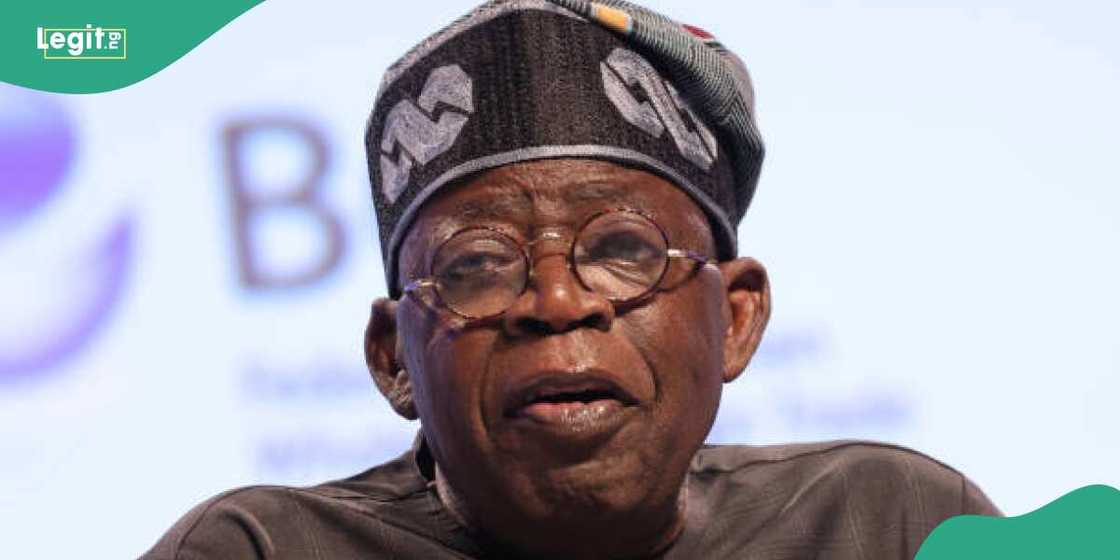FG Confirms Successful Repayment of Chinese, World Bank, IMF Loans, Eyes New Ones
- Nigeria’s budget office has disclosed that the government spent 64.5% of revenue servicing debts in 2023
- Debt servicing costs increased slightly to N7.66 trillion in 2023 from the projected amount of N6.56 trillion
- The development has led to reports that Nigeria has exceeded its debt-to-GPD ratio, which the DMO has debunked
Legit.ng’s Pascal Oparada has reported on tech, energy, stocks, investment, and the economy for over a decade.
Data from the budget office shows that the Nigerian government spent 64.5% of its 2023 revenue on debt servicing.
Actual debt service cost was about N7.66 trillion in 2023, an increase of 16.9% from the projected N6.56 trillion.

Source: Twitter
Nigeria earns N11.88 trillion in revenue in 2023
Actual debt service cost rose marginally in 2022 to N3.76 trillion from the budgeted N3.69 trillion.
PAY ATTENTION: Сheck out news that is picked exactly for YOU ➡️ find the “Recommended for you” block on the home page and enjoy!
The 2023 figure is higher than the 48.5% of the total revenue that debt service consumed in 2022 and lower than the 71.8% of total revenue used in debt servicing in 2021.
Total revenue was N11.88 trillion, down from the projected revenue of N11.05 trillion. In 2022, the Nigerian government received a lower-than-expected revenue of N7.76 trillion, down from the projected revenue of N9.97 trillion.
PwC projects rising debt service cost
According to reports, PwC Nigeria disclosed in its 2024 Nigeria Economic Outlook report that debt service could hit N9.3 trillion in 2024 from N8.25 trillion in 2023 to N11.1 trillion in 2026.
The company highlighted that Nigeria’s deficit has grown by 379% from 2015 to 2023, leading to a high debt and debt service profile.

Read also
Concerns as Access, GTBank, Zenith, other banks’ borrowing from CBN hit N57 trillion in one week
A United Nations report said the growing debt burden to global prosperity has translated into a substantial burden for developing countries such as Nigeria due to limited access to financing, rising borrowing costs, currency devaluations, and sluggish growth.
DMO says Nigeria’s debt-to-DGP ratio is in order
There have been recent fears that Nigeria’s debt-to-GDP ratio has exceeded 50%, above the acceptable World Bank and IMF ceiling.
The development has prompted the Debt Management Office (DMO) to say that the country’s debt-to-GDP ratio is still within acceptable international level.
The Director-General of the DMO, Patience Oniha, disclosed this in an interview with the News Agency of Nigeria (NAN) on Tuesday, July 9, 2024, in Abuja.
The DMO boss was reacting to reports that the country’s debt-to-GDP ratio has surpassed the World Bank/IMF prudential ceiling for countries in Nigeria’s peer group.
Nigeria’s debt hits new high
A previous report by Legit.ng disclosed that Nigeria’s debt stock reached N121 trillion amid new borrowings from the Nigerian government

Read also
Nigeria Shines as World Bank releases list of top 10 African countries with highest remittance
The World Bank approved another $2.25 billion in loans for Nigeria across two significant projects on June 13, 2024.
Official documents show that the funds will be shared between two projects to boost Nigeria’s economic stability and resource mobilization capabilities.
Top 10 Nigerian states with the highest domestic debt
Legit.ng earlier reported that While many tend to shy away from debt, regarding it as a slavery tool to creditors, recent analysis has proven that a moderate amount of debt is functional for economic growth.
A report by the International Monetary Fund (IMF) said domestic debt starts to impede growth over a ratio of 35% of bank deposits, supporting conventional worries about crowding out and bank efficiency.
The domestic debt data report is generated from the signed-off submissions received from the 36 states of the federation and the Federal Capital Territory (FCT).
Proofread by Kola Muhammed, journalist and copyeditor at Legit.ng
PAY ATTENTION: Unlock the best of Legit.ng on Pinterest! Subscribe now and get your daily inspiration!
Source: Legit.ng


